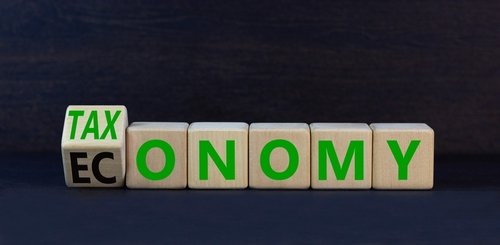Brussels – Brussels Morning:- Last week a very sad page was written in the history of the European Parliament, which turned out to be not up to its role. Our Institution indeed missed the only opportunity to block the inclusion of fossil gas and nuclear energy in the taxonomy, thus leaving unheeded the will of over half of EU citizens who rightly consider these two energy sources unsustainable. In the aftermath of such a serious decision, I think it is useful to try to explain the past developments to better understand how it has been possible to reach such a disheartening outcome.
The taxonomy is an EU regulation, adopted in 2020, which establishes a classification system for environmentally sustainable economic activities. To be identified as sustainable, these activities must meet scientific criteria that demonstrate their substantial contribution to one of the six environmental objectives (climate mitigation, climate adaptation, circular economy, biodiversity protection and restoration, pollution prevention and control, use and water resources protection) and at the same time ensure that they do not significantly harm any of the other objectives. Under the taxonomy regulation, the European Commission has the task of drawing up the actual list of sustainable activities through delegated acts. And here came the problem.
In March 2022, in fact, yielding to the pressure of the fossil and nuclear energy lobbies, as well as to the blackmailing of France and Germany, the Commission adopted a complementary delegated act (CDA) that includes nuclear energy and fossil gas in the list of sustainable economic activities, without conducting a prior public consultation or an impact assessment.
Classifying fossil gas and nuclear energy as sustainable investments blatantly contradicts scientific evidence as well as the European Green Deal and the path towards the decarbonisation of the EU economy. The sustainability label for gas and nuclear power in fact risks diverting billions of euros from the needed investments in renewables and energy efficiency to those in polluting, expensive and dangerous energy sources, jeopardizing the achievement of medium and long-term climate goals.
The European Central Bank found that gas prices were multiplied by six in 2021 and that gas is a key driver of the inflationary crisis. Today, the prices of renewables are far lower than those of gas, and new nuclear power plants are estimated to be 4 times more expensive than new onshore solar or wind power plants. The promotion of new gas and nuclear power plants would not bring any solution to the energy price crisis, on the contrary it risks aggravating it.
But there is more. The war in Ukraine and the energy price crisis have radically changed the context in which the taxonomy will be implemented, because it is now clear to everyone that fossil gas is a source of energy insecurity and geopolitical risk for all European countries. Prolonging – or worse, increasing – our dependence will make us even more subject to imports from abroad, and from Russia, which in fact could earn up to 4 billion euros more per year, for a total of 32 billion euros by 2030, thanks to the extension of the taxonomy. Indeed, it is no mystery that Russian energy companies such as Gazprom, Lukoil and Rosatom have lobbied fiercely (at least 18 meetings with the European Commission) to influence the classification of fossil gas and nuclear energy as sustainable.
It is not surprising that the financial world itself is not in favour of such a measure. Banks and investment funds need long-term certainty and clear and reliable information on the environmental impact of the activities they intend to finance, and in fact the current global green bond market already clearly excludes gas and nuclear power. Many institutional investors and pension funds have criticized the labeling of gas and nuclear as sustainable, pointing to it as counterproductive. The President of the European Investment Bank himself condemned the Commission’s CDA, identifying a serious risk of undermining investor confidence.
In light of the countless reasons for strongly and convincingly rejecting such a brazen u-turn in the fight against the climate crisis, we Greens/EFA presented a proposal to object to the CDA together with other MEPs from the major political groups in the Parliament. Despite having obtained the approval of the ENVI and ECON Committees, the majority in plenary voted down the objection and preserved the CDA as it is, formally granting greenwashing a legal status. As unacceptable and enraging as this might sound, the final words have not been said. Member States like Austria and Luxembourg, potentially joined by Denmark and Spain, already announced their intention to challenge the CDA and file a complaint against the Commission for a decision that threatens the future of the whole EU. Watch out for what’s coming next..




